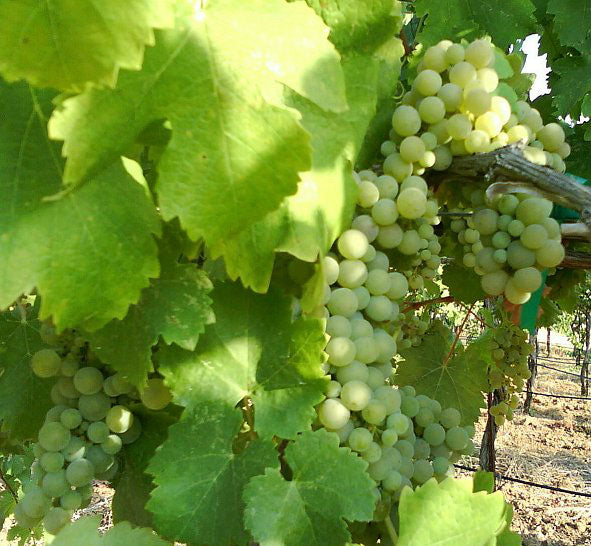Viognier
An error occurred while loading the products.
Reload the products
Reload the products
No products found
Use fewer filters or remove all
Use fewer filters or remove all
Allochthonous
(Locale)

Viognier
| Area type | Allochthonous |
| Color type | White grape |
| Vigor | Good |
| Features | Leaf: medium to small, orbicular, pentalobata; Lightly bulky flap, light green; U open petiole breast; Upper U-side breasts or slightly overlapping lobes, shallow bottom lateral sinuses.Bunch: medium-small, truncated-conical, sometimes winged, sometimes compact.Acino: small, spheroidal or slightly oval; Thick skin, amber yellow; Aromatic flavored flesh, accentuated by surimix. |
| Features wine | The wine obtained from the viognier grape is of straw yellow color with golden reflections. On the palate it is fresh, sour, fruity. |
| Growing areas | In Italy Viognier is spreading mainly in warm climate regions (Tuscany, Emilia Romagna, Umbria, Lazio) where it is generally assembled with other grapes. |
| History | The Viognier vine originates from the Rhone Valley, France, where it was introduced by Emperor Marco Aurelio Probo, originally from Sirmia (Sremska Mitrovica) in Serbia, so it is possible that its origins are Balkan. For a long time, due to the low productivity, Viognier has come back to the fore in recent times as White Condrieu (Côte du Rhone) wines are difficult to find and are characterized by low acidity and remarkable olfactory intensity. To confirm its origins, we find it cultivated also on the island of Vis (Dalmatia) under the name of Vugava or Bugava. |
| Productivity | Regular |
| Ripening period | Middle-early |
| Synonyms | Viognè, Petit Vionnier |

